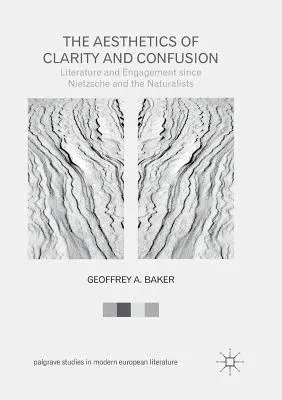Geoffrey A Baker
(Author)The Aesthetics of Clarity and Confusion: Literature and Engagement Since Nietzsche and the Naturalists (Softcover Reprint of the Original 1st 2016)Paperback - Softcover Reprint of the Original 1st 2016, 7 July 2018

Qty
1
Turbo
Ships in 2 - 3 days
In Stock
Free Delivery
Cash on Delivery
15 Days
Free Returns
Secure Checkout
Part of Series
Palgrave Studies in Modern European Literature
Print Length
279 pages
Language
English
Publisher
Palgrave MacMillan
Date Published
7 Jul 2018
ISBN-10
3319825178
ISBN-13
9783319825175
Description
Product Details
Author:
Book Edition:
Softcover Reprint of the Original 1st 2016
Book Format:
Paperback
Country of Origin:
NL
Date Published:
7 July 2018
Dimensions:
21.01 x
14.81 x
1.57 cm
ISBN-10:
3319825178
ISBN-13:
9783319825175
Language:
English
Location:
Cham
Pages:
279
Publisher:
Weight:
353.8 gm

